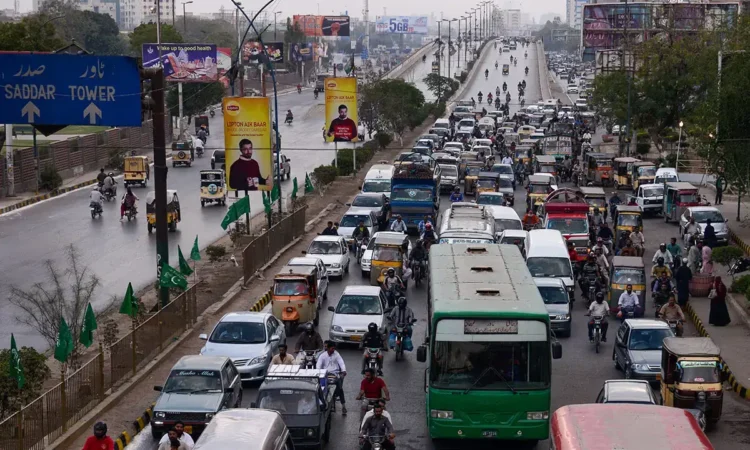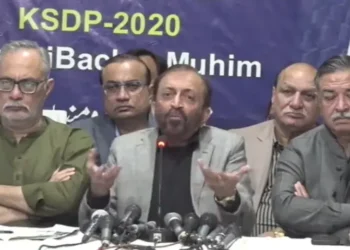KARACHI; Sindh Chief Minister Murad Ali Shah announced on Wednesday that motorists caught for the first time by the newly introduced e-ticketing system can have their fines waived within 10 days by appearing in person and submitting an apology.
According to a government press release, the chief minister inaugurated the Traffic Regulation and Citation System (TRACS) — commonly known as the e-ticketing system — at the Central Police Office earlier this week. The initiative replaces the outdated manual challan process with a fully automated, AI-integrated mechanism that uses advanced CCTV cameras to detect traffic violations such as speeding, red-light jumping, and helmet non-compliance.
Sindh Inspector General of Police Ghulam Nabi Memon briefed the CM on the system’s progress, revealing that even 35 government vehicles had been fined for traffic violations. These included offences like not wearing seatbelts, running red lights, using tinted windows, and operating mobile phones while driving.
The report cited one instance in which a police vehicle was fined Rs10,000 for repeated seatbelt violations captured by cameras on the Lyari Expressway.
Highlighting the fairness of the system, CM Shah said that “even police officers are not above the law” and must comply with traffic regulations. He clarified that while first-time offenders can get their fines waived by apologizing within 10 days, repeat offenders will have to pay penalties without exception.
“This system ensures accountability, transparency, and equal enforcement of the law,” CM Shah stated, emphasizing that public safety and adherence to traffic laws are the government’s top priorities.
Since the launch of the new system, Karachi Traffic Police have issued over 2,650 electronic challans in a single day. The breakdown includes 1,535 fines for not wearing seatbelts, 507 for riding motorcycles without helmets, 419 for overspeeding, 166 for running red lights, and 32 for using mobile phones while driving.
Seven challans were issued for tinted windows, while several others were imposed for improper or illegal parking, stop line, and lane violations.
Earlier this year, the Sindh government decided that e-challans would be sent directly to vehicle owners’ registered home addresses, and vehicles with unpaid fines would not be sold or transferred.
The move follows a surge in fatal road accidents in Karachi — especially involving dumpers and water tankers — that killed nearly 500 people and injured more than 4,800 in 2024. The rising death toll had prompted protests, pushing the government to restrict heavy vehicles during the day and mandate road fitness certifications.





































































